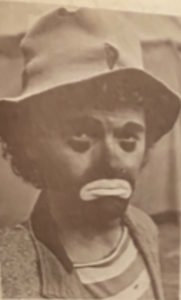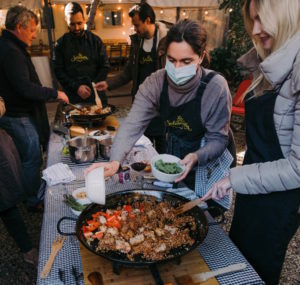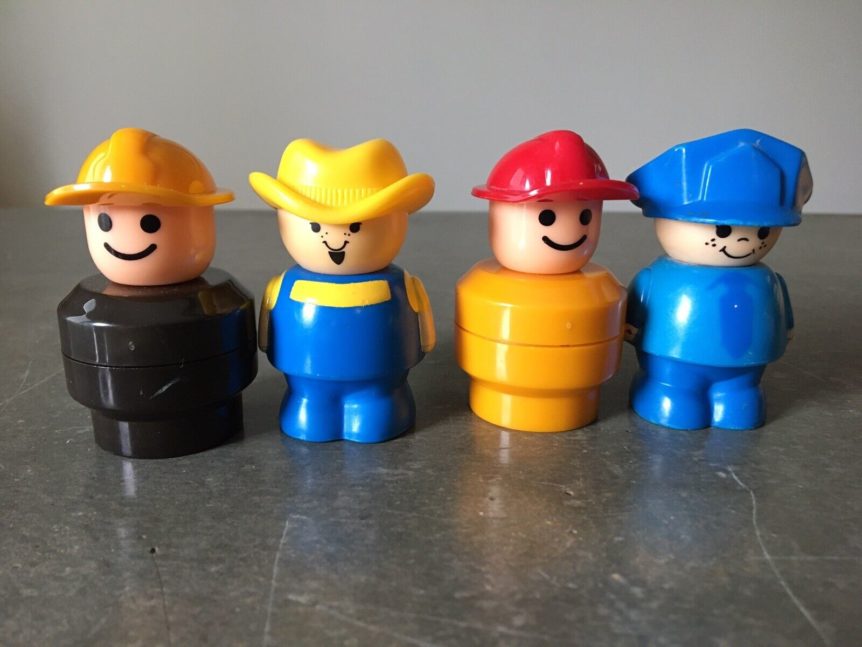For our sixth area of Total Wellness we will take a look at vocational wellness.
“Vocational” is a word choice I made deliberately over “career” or “occupational” wellness. Although a job can be a vocation, not all jobs are vocations and not all vocations are jobs. A vocation doesn’t have to be paid; parenting and caregiving, while also relational, can also be vocational. Art, music, activism, coaching, environmental conservation, and service work are other common vocations that may or not make money.
So what makes a job into a vocation? Siri defines vocation as “a strong feeling of suitability for a particular career or occupation.” Most folks understand suitability as how a person’s skills and natural abilities match the requirements of a specific occupation. However, many people who are well-qualified for their jobs do not enjoy, celebrate, or look forward to each day. TGIF is a term they are quite familiar with and many are counting the years or days until their retirement, when they will be free to really do what will bring them happiness!

Terry as a clown
Vocational wellness includes not only a match between skills and job requirements, but also a high level of excitement, fulfillment, and in many cases a strong sense of making a difference. Folks high in vocational wellness look forward to showing up every day, Mondays as well as Fridays. Their vocation energizes them rather than drains their energy resources. This directly impacts their investment in what they do. All of this makes them more “successful” in a wide variety of ways.
My personal journey toward Vocational Wellness has been and continues to be filled with countless twists and turns, but the early years were definitely the bumpiest! I can’t even remember all the jobs I had, but they include selling fruit, newspaper delivery, running Bingo tables, farm work, milking cows, driving a delivery van, flower arranging, landscaping, pumped gas, manufacturing fiberglass, driving a school bus, being a hotel bellhop, handyman, dorm floor supervisor, cement finisher, taxi cab driver, professional circus clown, and fire eater!
With each job I learned a lot about myself, but even so, my first major career decision was not based on any feeling of “suitability,” passion, or even interest! I decided to go to Williamson College of The Trades primarily to escape the likelihood of ending up working in the mines like my dad! I’m still not totally sure why I chose the trade I did but none of the options excited me. I knew a lot more about what I didn’t want to do than what I did.
Even though fear was what pushed me toward Williamson, I also had to push through a lot of fear to go there. Having never left the small rural town I’d grown up in, this would be a whole new world, one I wasn’t sure I’d fit in. And I was intensely afraid I would be in over my head academically.
To my surprise, I did well at Williamson and at the end of my senior year, I got several job offers for various businesses, all of which were more money than I’d ever made before. As I was struggling with which job offer to accept, I asked my house mother, Mom Jones, who often served as my confidant and counselor during those years, her advice.
“I’m not sure any of these fit with your gifts, Terry,” she said. “It’s your decision, but I do believe you will need to be working with and helping people.”
This was a major turning point in my vocational journey! The more I thought about it, the more I realized that working with people was what excited me and what I wanted to do with my life.
I didn’t accept any of the lucrative job offers (for a poor kid from Lavelle, turning my back on that much money was hard!) and instead attended college to pursue a degree in Behavioral Science. In that setting I really thrived. I couldn’t get enough courses in my major and fell in love with learning for the first time.
During college, I applied to Gettysburg Seminary. Others seemed like to think it was a good fit for my gifts and skills, and growing up, I’d always gotten a subtle but unmistakable message from my mother that she thought the ministry was my true calling. Like Mom Jones, my mother was someone whose opinion I valued immensely.
I was accepted into the program and soon afterwards, I had a meeting with Rev. Jan Walker, who was in charge of the candidacy process. He assured me he thought I would be an asset to the ministry if that is where I ended up, but he felt like I might be attempting to live out my mother’s dream and not my own.
This stopped me in my tracks. I knew as soon as he said it he had hit the nail on the head. But wouldn’t saying ‘no’ be like turning my back not only my mother’s wishes but on God too? Wasn’t the ministry the ultimate vocation and anything less would be second best?
Rev. Walker patiently explained that there is no hierarchy of roles in God’s eyes; that we are all equal members of the “Priesthood of All Believers,” no matter our job. And that even though my mother might have hoped for me to be a minister, he was sure she would want me to make the decision which was right for me. I felt like a 75-pound weight had been lifted off my back and respectfully withdrew my application.
After graduation, I took a position as a counselor at a maximum security prison. Although I found the bureaucracy stifling, I loved working with the residents. It became crystal clear that I was a counselor. It wasn’t just what I did, it was who I was!
I spent the next 39 years as a full-time counselor, 32 of which as the Director of Family Life Services at the Lutheran Home at Topton. For me, it felt like the ideal match in so many ways I can’t begin to list them all. Even after I retired in 2012 to pursue some new interests I hadn’t made time for in the past (one of which you are reading right now!), I still kept counseling clients part time.
Recently a new acquaintance asked me why I still work (which he considered a four-letter curse word that shouldn’t be uttered in mixed company!). I said, “Because I love it. I look forward to each session; it energizes me and I believe I am still able to make a difference in people’s lives. But I will stop when it begins to feel like a job to me!”
He told me I was “unusual,” which, judging by the look on his face, really meant bonkers!
That isn’t an uncommon reaction. Many of my wellness clients dismiss the idea of finding fulfillment in their work. Some, like my retired friend, believe work is, by definition, unpleasant. They give me a variety of reasons why pursuing their “dream job” is impossible: they don’t have the skills or experience necessary; it won’t pay enough; their spouse/parents/children won’t approve; they don’t even know what their dream job would be; “nobody” is happy with their job; etc.
I challenge each of these limiting beliefs. We always have options. The list of examples and possibilities for both paid and volunteer opportunities is endless. The barriers we think exist may or may not be real. You never know until you try.
I encourage you to look back at Michael’s story . He feared that quitting his high-paying, but stressful management job would be financially disastrous and that his family would never approve. He felt trapped. Once he was able to push past his fears, he found that neither materialized. To his surprise, when he announced his intention to quit, his boss suggested reorganizing his job responsibilities instead so he could do more of what he loved and less of what he didn’t—all without a pay cut!
Although it wasn’t necessary for Michael, some people do change jobs or even fields on their journey toward greater vocational wellness. Others have become entrepreneurs, experiencing excitement, energy, and fulfillment they hadn’t imagined possible!
Volunteering is often another good option. Katie, one of my early wellness clients, felt stuck in a job that provided her with little more than money. Her passion in life was animals, but her childhood dream of being a veterinarian had not been possible for a variety of reasons.
 Katie began volunteering at the Clinic where she took her pets simply for the joy and fulfillment it brought her. The vet had long recognized her love of and sensitivity to animals so was excited to have her volunteer. Before long, Katie was offered a part-time position and then a full-time one! I can’t fully describe how this transformed not only Katie’s vocational wellness but total life journey.
Katie began volunteering at the Clinic where she took her pets simply for the joy and fulfillment it brought her. The vet had long recognized her love of and sensitivity to animals so was excited to have her volunteer. Before long, Katie was offered a part-time position and then a full-time one! I can’t fully describe how this transformed not only Katie’s vocational wellness but total life journey.
Another client who felt she was not able to pursue her dream of becoming a chef because of her parenting responsibilities started volunteering to help with meals at a nearby shelter and was soon given responsibility for making dinner one night a week. She began using her amazing cooking skills to make higher-end dinners and actually got a local business to financially support her efforts! She felt working at the shelter was more of a vocation than working a fancy restaurant would ever have been.
No matter where we are in life, our healthy pursuit of vocational wellness does not ever need to end. God has put a spark within each of us—as individual as a fingerprint—that determines what inspires you, what excites you, what sets you on fire. When you tend that inner flame, it will not only warm you, but light the world.
There is a quote from theologian Howard Thurman I liked so much I kept it up on the whiteboard at Family Life Services for years that perfectly expresses my concept of vocational wellness. It reads: “Don’t ask yourself what the world needs. Ask yourself what makes you come alive. What the world needs is people who have come alive.”
QUESTIONS FOR DEEPENING THE JOURNEY
- Looking back at the various jobs (paid and unpaid) you have had, which feel like your vocation and which are just “jobs”? What factors differentiate them?
- How would you define your vocation or calling? What makes you come alive? Is there a difference in what you are good at and what lights you up?
- In what ways are you currently living out your vocation?
- What fears have held or are holding you back from following your inner calling more fully? Have you challenged your fears and limiting beliefs? If not, why not?
- What have other people told you about what they believe you are best at and/or should be doing with your life? Do you sometimes follow other people’s guidance rather than listening your own inner voice? How do you discern which advice and feedback to take?
- How have external factors like pay, status, job security, or benefits played into your choice of jobs or career over and against the intrinsic rewards of the job itself? How has that impacted your ability to live out your vocation?
- What are some concrete ways you could improve or expand your vocational wellness? What is holding you back from pursuing them?
Photo by Jason Leung on Unsplash.com
Photo by Colin Meg on Unsplash.com


Terry, this article was so meaningful to me. Jim was blessed to have found his vocation as guidance counselor after several jobs that he really didn’t like, but we needed the money. He always went to “work” with a spring in his step and a smile on his face as a counselor. He loved every minute of his profession. I, also, found my vocation when I went to work at our local Church after 18 years in a job that did not give me joy. Life is interesting and Jim and I feel that we were both so blessed to… Read more »